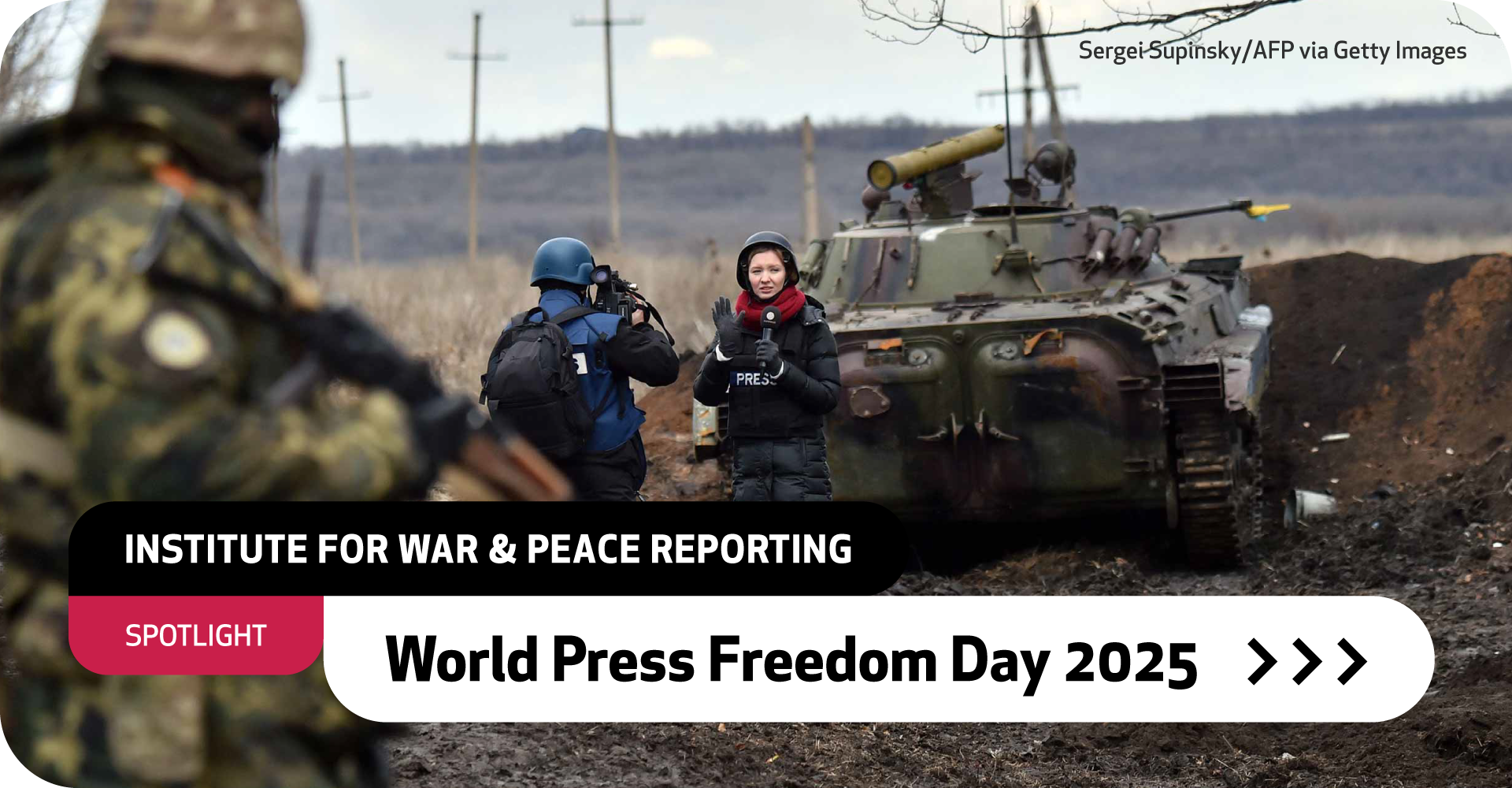How African Journalists are Defying Censorship
In the face of harassment and repression, media across the continent is not only surviving but innovating.
In Africa, the landscape of journalism faces unprecedented challenges. Despite the central role of media in informing the public and setting the democratic agenda, governments across the continent—armed with sophisticated surveillance tools—increasingly work to stifle press freedom.
Legal crackdowns, internet shutdowns and physical attacks have become common tactics in silencing independent media, despite the fact that many African constitutions and declarations guarantee freedom of association and expression. In their desperate attempts to cling to power, authoritarian regimes violate these rights, suppress dissenting voices, and intimidate those who speak out against human rights abuses and endemic corruption.
Yet, amidst these challenges lies a story of remarkable resilience and an unwavering commitment to truth by courageous journalists and media-support organisations across Africa.
"Press freedom is not just about journalists but about the people they serve."
In the face of censorship and repression, African journalism is not only surviving but innovating. Journalists and newsrooms are leveraging technology, collaboration, and creativity—often at great personal risk—to continue their essential work. These innovations are reshaping journalism and redefining how media responds to oppression.
As we mark World Press Freedom Day, here are some of the most inspiring examples of innovation in African journalism:
Digital Tools to Safeguard Journalists: Securing the Virtual Space
In an era where digital tools and AI are used by malign actors to track journalists, technology has also become a shield. Apps like Signal and WhatsApp have become indispensable for securely communicating in countries with rampant surveillance. These encrypted platforms allow journalists to coordinate across borders, share sensitive information, and protect their sources.
More recently, many African newsrooms have started using WhatsApp Channels—a broadcast tool that allows one-to-many communication—to reach wider audiences while staying below the censorship radar. These simple measures have significantly reshaped how African journalists work, shielding them from the worst effects of surveillance and harassment.
Collaborative Networks: Strength in Unity
If a journalist exposes corruption alone, they risk being targeted. But when a collective tells the same story, the risk is diffused. That philosophy underpins groups like the African Network of Centers for Investigative Reporting (ANCIR) a coalition of the continent's best newsrooms and centers; the Norbert Zongo Cell for Investigative Journalism in West Africa (CENOZO) a regional network of journalists created to promote investigative journalism in West Africa; the Coalition for Whistleblower Protection and Press Freedom, CWPPF; Center for Collaborative Investigative Journalism and many other networks in Africa, which enable journalists to collaborate, pool resources and publish collectively, making it harder for oppressive actors to retaliate.
These alliances promote cross-border investigations, build safety protocols and enable coordinated responses to threats. In such solidarity lies safety, power, and reach.
Tracking and Advocacy on Press Attack
The Centre for Journalism Innovation and Development (CJID) is leading the charge with its Press Attack Tracker (PAT), a vital tool documenting press freedom violations across West Africa. In 2024 alone, PAT recorded 135 violations. Its expansion to Ghana, the Gambia, Liberia and Sierra Leone is a critical step in regional advocacy and journalist safety.
CJID also annually convenes journalists to commemorate World Press Freedom Day, with discussions ranging from fact-checking to AI and digital rights, a proof that support systems for journalists are not only alive but evolving.
Similarly, the Media Foundation for West Africa (MFWA) continues to monitor violations, advocate for access to information and push for legal reforms to safeguard media workers.
HumAngle Media in Nigeria has taken a critical step toward the well-being of journalists by launching the HumAngle Sanctuary, a mental health initiative. Recognising the psychological toll of reporting from conflict zones and dealing with traumatic events, this offers psychosocial support to journalists working on the frontlines. It has convened conversations around mental health challenges, including the emotional weight of covering missing persons crises. By providing a safe space and resources for mental health, HumAngle ensures that journalists are not just protected from external threats but also supported internally as they carry out their important work.
Legal Empowerment: Pro Bono Support for Journalists
The Thomson Reuters Foundation offers legal lifelines through its TrustLaw programme connecting media organisations and civil society groups with free legal support. In countries like Kenya, Nigeria, South Africa, and Zambia, this has empowered journalists to fight back against unjust detentions and legal intimidation. TrustLaw also partners with media freedom groups to develop resources on rights, helping journalists navigate hostile legal environments. Also, organisations like Citizen Gavel, a Nigerian not-for-profit, have provided legal assistance to journalists facing harassment or detention. For instance, they demanded the immediate release of investigative journalist Fisayo Soyombo, who was detained by military authorities, emphasising that his detention undermined press freedom and democracy in Nigeria.
Global Watchdogs: Holding Power to Account
Reporters Without Borders (RSF) continues to play a pivotal role by publishing the World Press Freedom Index, assessing media freedom in 180 countries. Its country-specific data on Africa informs advocacy, shapes donor priorities, and keeps the spotlight on governments that violate press rights. The Committee to Protect Journalists (CPJ) also plays a pivotal role in supporting press freedom across Africa through a multifaceted approach, including tracking attacks against journalists, advocacy and raising international awareness of press freedom in Africa.
Despite the odds, African journalists are rising, armed with courage and innovation. Whether through encrypted tools, collaborative investigations or data-driven advocacy, they continue to tell the stories that matter.
As we celebrate these efforts, we must also acknowledge that the fight is far from over. Press freedom is not just about journalists but about the people they serve. It is about truth, accountability, and the right of every citizen to know.
And in this ongoing struggle, African journalists remain on the frontlines, bold, resilient and unwilling to be silenced.
Adebayo Aare contributed preliminary research support to this story.

